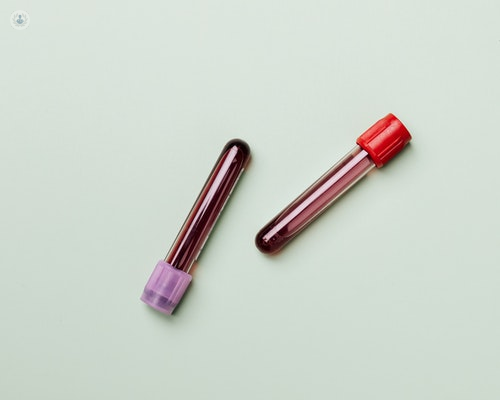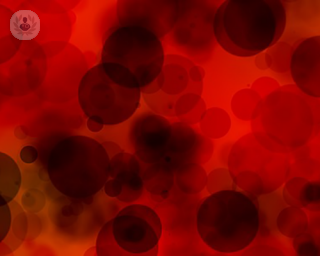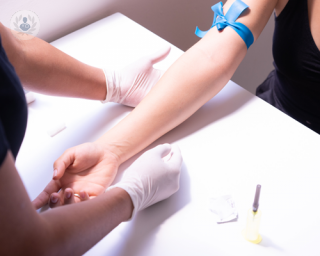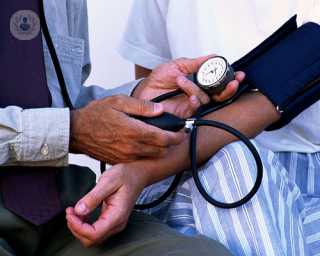Why are blood tests performed?
Blood tests are extremely common and are performed for a variety of reasons. They can be used for general health assessments, checking for infections, evaluating organ functionality and screening for genetic conditions.

How to prepare for a blood test
Before your test, you will be given specific instructions to follow to help you prepare for your blood test. It is of vital importance that these instructions are followed to ensure that the results of the test are not affected.
Preparation usually varies depending on the type of blood test that you are having, examples of things you may be asked to do beforehand include:
- Avoid eating or drinking anything other than water for up to twelve hours before the time of your test
- Stop taking certain medicines which affect your blood
- Refrain from certain activities which can affect blood flow such as exercise or smoking
Blood test procedure
A blood sample is taken from a part of the body that is easily uncovered, where veins are close to the surface. In adults, the blood vessels in the arm are most commonly used, while blood samples from children are usually taken from the back of the hand.
A tourniquet is used to squeeze the arm, which slows down the blood flow and makes the vein swell, making it easier to take a sample. The area of skin may be cleaned with an antiseptic wipe before the sample is taken using a syringe. Most people feel a slight pricking sensation as the needle pierces the skin, but it shouldn't be painful.
The tourniquet will be removed once the blood sample is taken and you will be given a piece of cotton-wool to use to apply pressure to the skin in order to minimise bleeding.
After the test
Most people don't feel any adverse effects from blood tests as only a small amount of blood is taken. Some people feel dizzy or faint during and after the test, although this is often related to fear of needles. After the needle is removed, you might have a small bruise on the arm, however, it won't be too painful and should disappear in a few days.
09-15-2020 04-26-2023Blood test
Dr Ummer Qadeer - GP (general practitioner)
Created on: 09-15-2020
Updated on: 04-26-2023
Edited by: Sophie Kennedy
Why are blood tests performed?
Blood tests are extremely common and are performed for a variety of reasons. They can be used for general health assessments, checking for infections, evaluating organ functionality and screening for genetic conditions.

How to prepare for a blood test
Before your test, you will be given specific instructions to follow to help you prepare for your blood test. It is of vital importance that these instructions are followed to ensure that the results of the test are not affected.
Preparation usually varies depending on the type of blood test that you are having, examples of things you may be asked to do beforehand include:
- Avoid eating or drinking anything other than water for up to twelve hours before the time of your test
- Stop taking certain medicines which affect your blood
- Refrain from certain activities which can affect blood flow such as exercise or smoking
Blood test procedure
A blood sample is taken from a part of the body that is easily uncovered, where veins are close to the surface. In adults, the blood vessels in the arm are most commonly used, while blood samples from children are usually taken from the back of the hand.
A tourniquet is used to squeeze the arm, which slows down the blood flow and makes the vein swell, making it easier to take a sample. The area of skin may be cleaned with an antiseptic wipe before the sample is taken using a syringe. Most people feel a slight pricking sensation as the needle pierces the skin, but it shouldn't be painful.
The tourniquet will be removed once the blood sample is taken and you will be given a piece of cotton-wool to use to apply pressure to the skin in order to minimise bleeding.
After the test
Most people don't feel any adverse effects from blood tests as only a small amount of blood is taken. Some people feel dizzy or faint during and after the test, although this is often related to fear of needles. After the needle is removed, you might have a small bruise on the arm, however, it won't be too painful and should disappear in a few days.


Low blood count: Causes, management and treatment
By Dr David Wrench
2024-11-21
From fatigue and low energy to a serious risk of dangerous infection, the consequences of a low blood count can vary greatly. Renowned consultant haematologist Dr David Wrench provides an all-you-need-to-know guide to low blood count and what it means for patients in this illuminating article. See more


How exactly is a cholesterol level test performed?
By Dr Rajesh Chelliah
2024-11-21
Cholesterol is a fatty, wax-like substance that is found naturally in the blood. Too much cholesterol, however, can pose a health risk and increase your chances of heart disease. In this article, esteemed consultant cardiologist Dr Rajesh Chelliah talks about the importance of cholesterol level testing. Dr Chelliah, who treats patients in Leicester and Nottingham, outlines what a cholesterol test entails and what to do if your test results are high. See more


Blood testing: why is it so important?
By Dr Hana Patel
2024-11-21
It is fairly common to visit your doctor for blood test assessments. However, you may wonder what the real benefits of blood testing are. Leading consultant GP Dr Hana Patel provides an insight into the benefits of blood testing, and how it can help to assess your health status. See more


5 ways to diagnose high blood pressure
By Dr Ahmed Elghamaz
2024-11-20
Hypertension is very common in our society. By the age of 60 half of our population has high blood pressure. It’s important to keep a check on your current blood pressure level because it can change with time. Leading cardiologist Dr Ahmed Elghamaz explains... See more
Experts in Blood test
-
Dr Anshumen Bhagat
GP (general practitioner)Expert in:
- Electrocardiogram
- Health check up (health screening)
- Blood test
- Women's health
- Ultrasound
- Cancer screening
-
Dr Kevin Barnett
GP (general practitioner)Expert in:
- Joint injections
- Carpal tunnel syndrome
- Hyperhidrosis
- Migraine
- Blood test
- Sexual health
-
Dr Andrew Burgess
GP (general practitioner)Expert in:
- Joint injections
- Skin tag removal
- Blood test
- Musculoskeletal pain
- Men's health check
- Chronic diseases
-
Dr Davina Woodward
GP (general practitioner)Expert in:
- Menopause
- Contraceptive methods
- Women's health
- Sexual health
- Perimenopause
- Blood test
-
Dr Felicity Groom
GP (general practitioner)Expert in:
- Women's health
- Lifestyle medicine
- Weight loss
- Diabetes
- Chronic diseases
- Blood test
- See all

Hinchley Medical
Hinchley Medical
Woodside House, Station Approach, Hinchley Wood, Esher, KT10 0SR
No existe teléfono en el centro.
By using the telephone number provided by TOP DOCTORS, you automatically agree to let us use your phone number for statistical and commercial purposes. For further information, read our Privacy Policy
Top Doctors

GP Care Now
GP Care Now
28 Castle St, Hertford SG14 1HH
No existe teléfono en el centro.
By using the telephone number provided by TOP DOCTORS, you automatically agree to let us use your phone number for statistical and commercial purposes. For further information, read our Privacy Policy
Top Doctors

Vitalis Health Belfast
Vitalis Health Belfast
58 Howard St, Belfast, Northern Ireland
No existe teléfono en el centro.
By using the telephone number provided by TOP DOCTORS, you automatically agree to let us use your phone number for statistical and commercial purposes. For further information, read our Privacy Policy
Top Doctors
-
Hinchley Medical
Woodside House, Station Approach, Hinchley Wood, Esher, KT10 0SR, EsherExpert in:
- Anti-aging
- Men's health check
- General Surgery
- Cosmetic Dermatology
- Diagnostic Imaging
- Women’s health
-
GP Care Now
28 Castle St, Hertford SG14 1HH, HertfordExpert in:
- Blood test
- Cardiology
- Women’s health
- Menopause
- Sexual health
- Assisted reproductive technology
-
Vitalis Health Belfast
58 Howard St, Belfast, Northern Ireland, BelfastExpert in:
- Blood test
- Men's health check
- Surgical Dermatology
- Spinal injections
- Women’s health
- Sports Medicine
- Most viewed diseases, medical tests, and treatments
- CAR-T cells
- Hormone therapy
- Migraine
- Hodgkin's lymphoma
- Autoimmune diseases
- Joint pain
- Child nutrition
- Nutrition
- Weight loss injections
- Bariatric surgery








